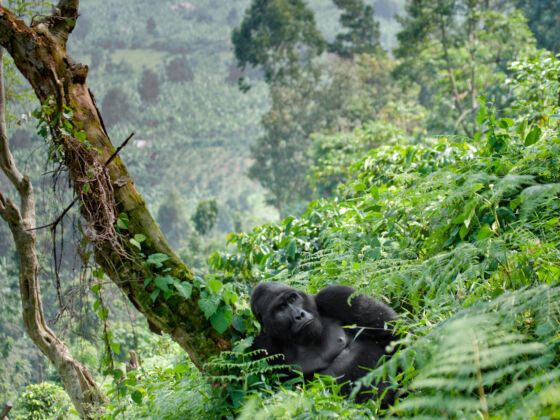For the second time in three years, Rwanda’s Volcanoes National Park is slated for expansion to serve its growing mountain gorilla population. The announcement signals hopeful news for the endangered species, which was once projected to be extinct by the millennium.
According to the World Wildlife Fund, there are currently around 1,000 mountain gorillas, a subspecies of the eastern gorilla, left on the planet. They’re concentrated in the highlands bordering Rwanda, Uganda, and the Democratic Republic of the Congo. More than half of the world’s population inhabits the Virunga Mountains, where Volcanoes National Park is located in northwestern Rwanda, alongside Virunga National Park in Uganda and Mgahinga Gorilla National Park in the DRC. The rest are found in Uganda’s Bwindi Impenetrable National Park.
